Dell XPS 14 Ultrabook Review – 2012 Version
Benchmarking the Dell XPS 14 Ultrabook
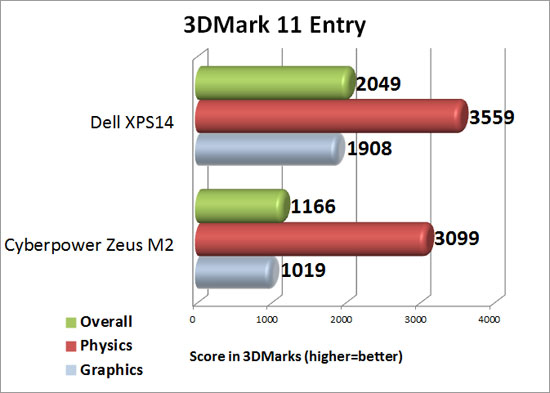
Because the Dell XPS 14 uses a dedicated NVIDIA GeForce GT 630M in a addition to the Intel HD 4000 graphics on the Intel Core i7 processor the XPS14 was able to go right past the performance of the Cyberpower Zeus M2. The XPS14 was able to score 2049 3DMarks using the GT 630M compared to the Intel Graphics HD 4000 graphics score of 1166 on the Zeus M2 from Cyberpower.
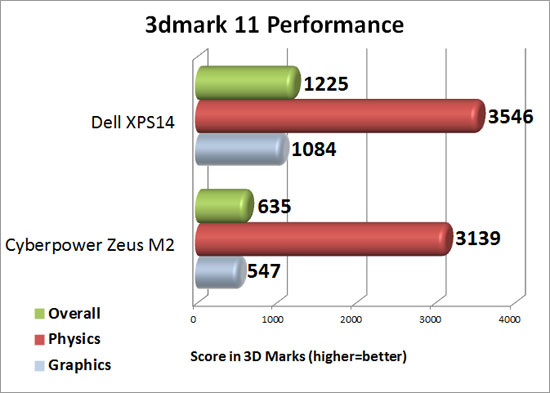
Firing up Futuremark 3DMark 11 at the performance setting the XPS14 was able to score 1225 3DMarks which is nearly double that of the Cyberpower Zeus M2.
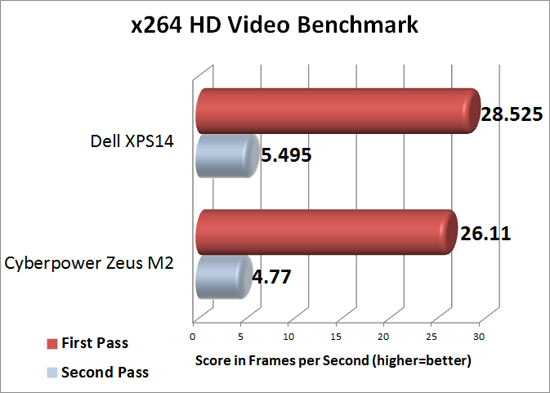
The Dell XPS14 was able to outperform the Zeus M2 by a narrow margin. The first pass shows the Dell Ultrabook leading by ~2.4 frames per second, a difference of 9.2%. The second pass which is much more processor intensive was also led by the XPS14, though this time it was a lead of 15.2%.
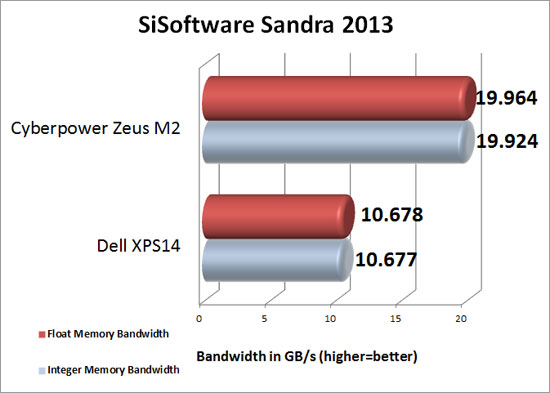
The Dell XPS14 scored an aggregate memory bandwidth performance in SiSoftware Sandra of only 10.67GB/s. This can be attributed to the single channel memory in place inside the Dell XPS14. The Cyberpower Zeus M2 is using dual channel memory at 1600MHz and was nearly double the performance. The XPS14 is using 1600MHz, though in only single channel.

The Dell XPS14 storage systems consists of two parts, a 500GB Seagate ST500LT012 2.5″ hard drive as well as s 32GB Samsung PM830 mSATA SSD. The Dell XPS14 is configured in Intel Smart Response Technology, this allows the system to cache the most commonly used files to speed up the system. The performance is certainly higher than that of a HDD alone, but not quite up to that of a stand alone SSD. The SRT system hit a sequential read of 305.7MB/s while the SSD alone hit 458.7MB/s. The write speed isn’t improved much from a typical hard drive.
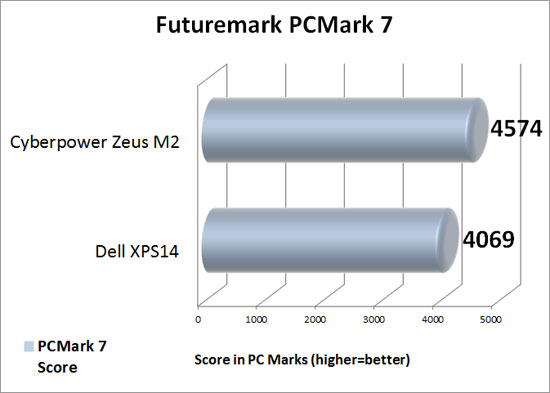
Overall the Dell XPS14 was just over 500 points lower than the Cyberpwer Zeus M2. The XPS14 has a faster processor and better graphics. The weak link when compared to the Zeus M2 is the single channel memory, and the storage performance.
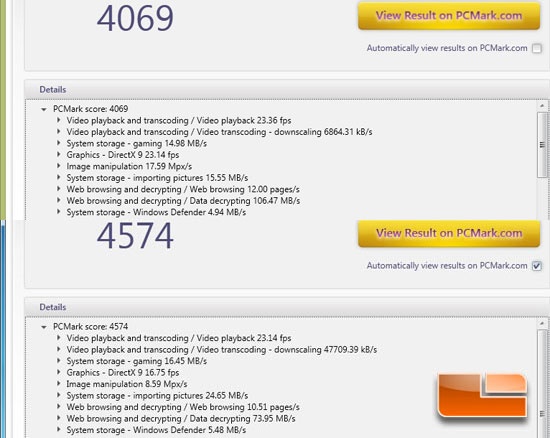
Looking at the individual sub-scores we can see where the memory and storage are effecting the score. Video playback and transcoding/Video transcoding – downscaling was only a fraction of the cyberpower scores. The Zeus M2 scored 47709.39kB/s while the Dell XPS14 hit only 6864.31kB/s. A difference on nearly 41000kB/s difference between the two systems. System storage – gaming, System storage – imparting pictures, and system storage – Windows Defender were all reasonably lower than the Cyberpower Zeus M2.

Comments are closed.